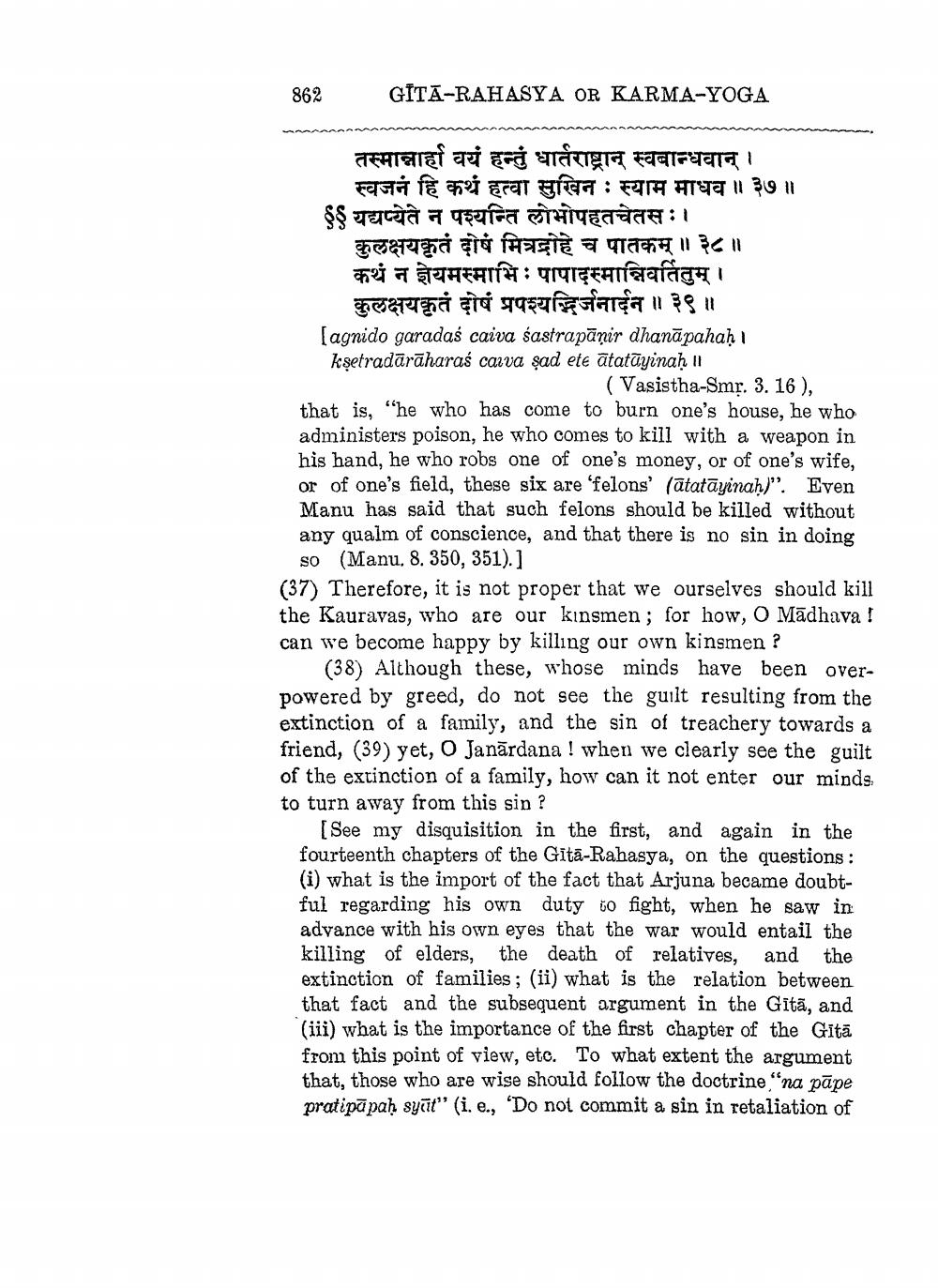________________
862
GITĀ-RAHASYA OR KARMA-YOGA
तस्मान्नार्हा वयं हन्तुं धार्तराष्ट्रान् स्वबान्धवान् ।
स्वजनं हि कथं हत्वा सुखिन: स्याम माधव ॥ ३७॥ ६ यद्यप्येते न पश्यन्ति लोभोपहतचेतसः।
कुलक्षयकृतं दोषं मित्रद्रोहे च पातकम् ॥ ३८॥ कथं न ज्ञेयमस्माभिः पापादस्मान्निवर्तितुम् ।
कुलक्षयकृतं दोषं प्रपश्यद्भिर्जनार्दन ॥ ३९॥ [agnido garadaś caiva sastrapāņir dhanā pahah 1 kşetradārāharaś carva şad ete atatüyinah II
(Vasistha-Smr. 3. 16), that is, "he who has come to burn one's house, he who administers poison, he who comes to kill with a weapon in his hand, he who robs one of one's money, or of one's wife, or of one's field, these six are 'felons (ātatāyinah)". Even Manu has said that such felons should be killed without any qualm of conscience, and that there is no sin in doing
so (Manu, 8. 350, 351).] (37) Therefore, it is not proper that we ourselves should kill the Kauravas, who are our kinsmen; for how, O Madhava ! can we become happy by killing our own kinsmen ?
(38) Although these, whose minds have been overpowered by greed, do not see the guilt resulting from the extinction of a family, and the sin of treachery towards a friend, (39) yet, O Janārdana! when we clearly see the guilt of the extinction of a family, how can it not enter our minds to turn away from this sin ?
[See my disquisition in the first, and again in the fourteenth chapters of the Gītā-Rahasya, on the questions : (i) what is the import of the fact that Arjuna became doubtful regarding his own duty to fight, when he saw in advance with his own eyes that the war would entail the killing of elders, the death of relatives, and the extinction of families; (ii) what is the relation between that fact and the subsequent argument in the Gītā, and (iii) what is the importance of the first chapter of the Gitā from this point of view, etc. To what extent the argument that, those who are wise should follow the doctrine na pāpe pratipā pah syāt" (i. e., 'Do not commit a sin in retaliation of




